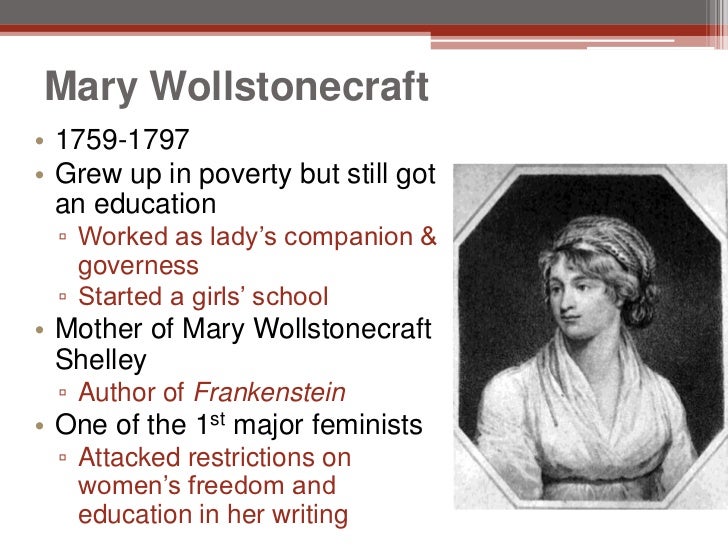
They were encouraged to keep their constitutions feeble, for instance, by being barred from exercise as children. Women behave in specific ways because they’re raised to behave in those ways, not because there is some sort of ‘feminine nature’ that gives women certain ‘weak’ characteristics. She falls without a doubt on the side of ‘nurture’. In this she is an early thinker in the ‘nature versus nurture’ debate. In general, Wollstonecraft argues that people are not ‘by nature’ one way or the other – rather, that women were ‘socialized’ to be a certain way because of their station in society. What possible reason could society have to not try this out? Were its leaders afraid that women were not in fact inferior? Indeed, the entire book is an extremely convincing appeal to educate women, and I think her arguments on this topic are flawless. How can anyone say that women lack intellectual capacity if they are not given any opportunity to develop it? To anyone who really believes that women are intellectually inferior, she proposes this challenge: educate women, then see if they indeed have inferior capacity for any subject. Wollstonecraft starts her book by pointing out the question-begging nature of this position. In Wollstonecraft’s time and society women were considered ‘by nature’ not able to think or reason as well as men, while at the same time they were mostly barred the opportunity of getting an education. Mary Wollstonecraft by John Opie, 1797 Education & Gender Construction In what follows, I will quickly sketch the main ideas and arguments in the book, in the hope that this will encourage you to learn more about the genius of Mary Wollstonecraft. But, although she was possibly one of the most original thinkers of the Enlightenment, she is rarely taught in ‘Introduction to Philosophy’ or ‘History of Philosophy’ classes. The Vindication is typically classified as a feminist classic however, her theories can be applied well beyond the issue of women in the eighteenth century.


In this book Wollstonecraft delivers a pioneering and convincing argument for equality between men and women.

Mary Wollstonecraft (1759-1797) is perhaps best known for having written A Vindication of the Rights of Woman, published in 1792. “Moralists have unanimously agreed, that unless virtue be nursed by liberty, it will never attain due strength – and what they say of man I extend to mankind, insisting, that in all cases morals must be fixed on immutable principles and that the being cannot be termed rational or virtuous, who obeys any authority but that of reason.” – Mary Wollstonecraft SUBSCRIBE NOW Classics A Vindication of the Rights of Woman by Mary Wollstonecraft Sara Bizarro reviews a classic: Mary Wollstonecraft’s pioneering Vindication of the Rights of Woman.


 0 kommentar(er)
0 kommentar(er)
